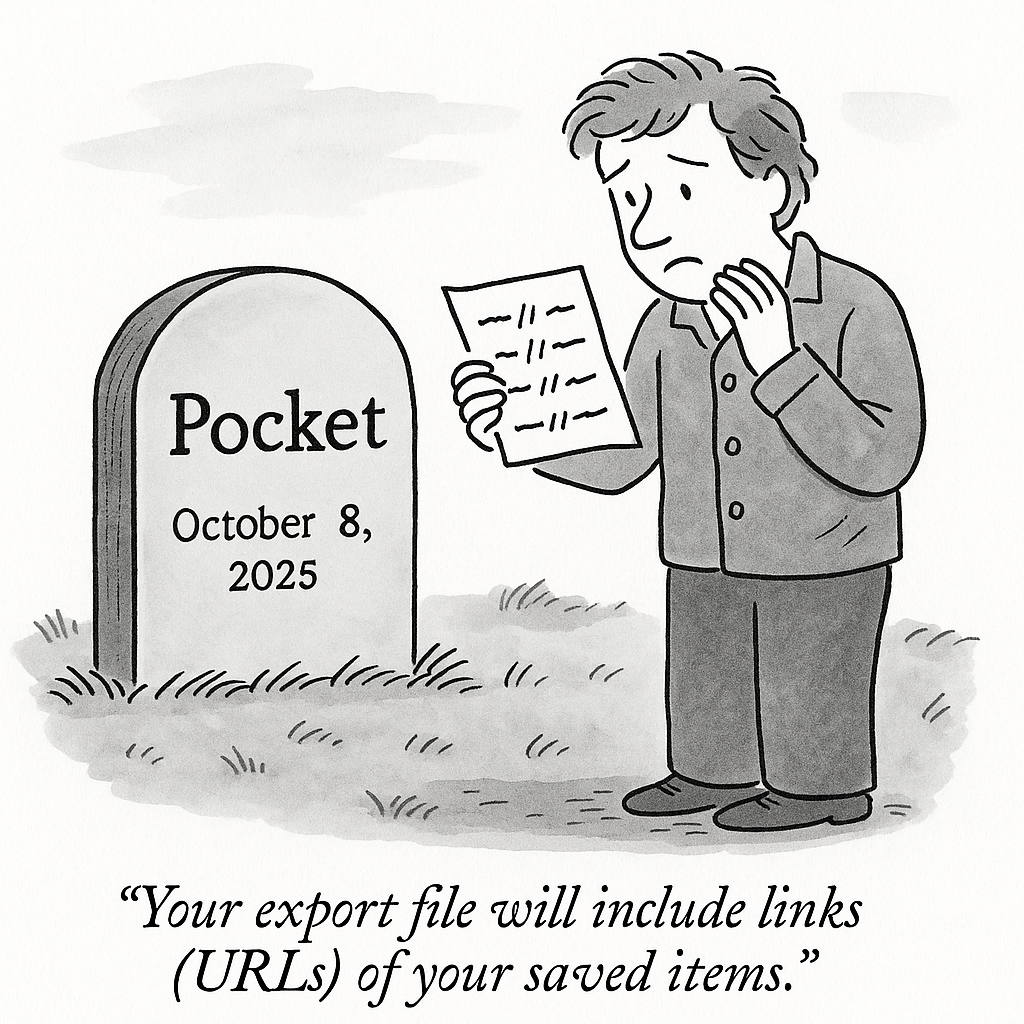In May 2025, Mozilla announced the shutdown of Pocket, its renowned content-saving service, as part of a strategic realignment focusing on its flagship browser and privacy-driven initiatives. Pocket had millions of loyal users. This closure is a reminder of the transient nature of digital tools.
Pocket’s journey began in 2007 when Nate Weiner created Read It Later, designed to help users conveniently save articles, videos, and web content for future consumption. Its simplicity and offline accessibility across devices fueled widespread popularity. Rebranded as Pocket in 2012, the app’s success caught Mozilla Corporation’s attention, leading to its acquisition in 2017[1], where it was seamlessly integrated with Firefox, further expanding its user base.
Pocket’s popularity was noteworthy, remaining a favorite among users even as tech giants attempted to replicate its concept. For instance, Facebook sought to clone Pocket’s functionality by acquiring Spool, which was later restructured into Facebook Save.[2] This detail underscores the competitive landscape Pocket thrived in and the unique value it provided to its users.
Mozilla has allowed users until October 8, 2025 to export their Pocket data, which includes saved links, titles, tags, and excerpts in HTML format.[3] While this move preserves access to user data, it hasn’t prevented frustration—many longtime users have expressed disappointment and concern across social media and forums. The core frustration lies not just in Pocket’s shutdown, but in the broader sense of platform instability: users invested years curating articles, building tag systems, and integrating Pocket into their reading and research workflows. The HTML export is helpful but limited—it doesn’t preserve highlights, article text, or reading progress, and requires manual effort to convert into usable formats.[4] For many, this feels like a betrayal of trust in an app they relied on daily.
However, shifting content consumption habits and evolving user needs contributed to Pocket’s decline. Mozilla’s decision to sunset the app reflects a broader industry trend: the impermanence of digital platforms. It serves as an invitation to users and developers alike to seek app-agnostic solutions that prioritize adaptability and longevity beyond any single service.
Conclusion
The end of Pocket is more than a corporate decision; it’s a poignant reminder not to rely solely on specific apps for essential functions. As technology continues to evolve, embracing flexible, app-independent solutions becomes crucial. Pocket’s popularity and eventual demise invite reflection on how we can future-proof our digital habits in an ever-changing landscape.
Devin Coldewey, Mozilla pockets Pocket in first acquisition, TechCrunch, Feb. 27, 2017 (the acquisition was for an undisclosed sum). ↩︎
Josh Constine, Pocket Wants You To Read Ads Later Too, TechCrunch, Feb. 23, 2016. ↩︎
All Pocket user content “will automatically be deleted” on October 8, 2025. “After this date, all user accounts and data will be permanently deleted.” Pocket is saying goodbye - What you need to know, Mozilla Support. ↩︎
How to export your Pocket saves, Mozilla Support (“Your export file will include links (URLs) of your saved items. The export does not extract the text of saved links. Additionally, the export does contain tags or highlights.”). ↩︎
Hani Sarji
New York lawyer who cares about people, is fascinated by technology, and is writing his next book, Estate of Confusion: New York.



Leave a Comment